News
2025.09.04
[Event Report] Japan-India Strategic Dialogue – Asia’s Global Responsibility: Japan-India Strategic Convergence for a Fragmented World –
From August 20 to 22, 2025, the International House of Japan co-hosted the 4th “Japan–India Strategic Dialogue” with the Ananta Aspen Centre, a leading think tank in India. This dialogue was convened with the aim of deepening discussions across a wide range of fields—including regional order, security, economic cooperation, and technological innovation in the Indo-Pacific—serving as a foundation for strategic dialogue between Japan and India.
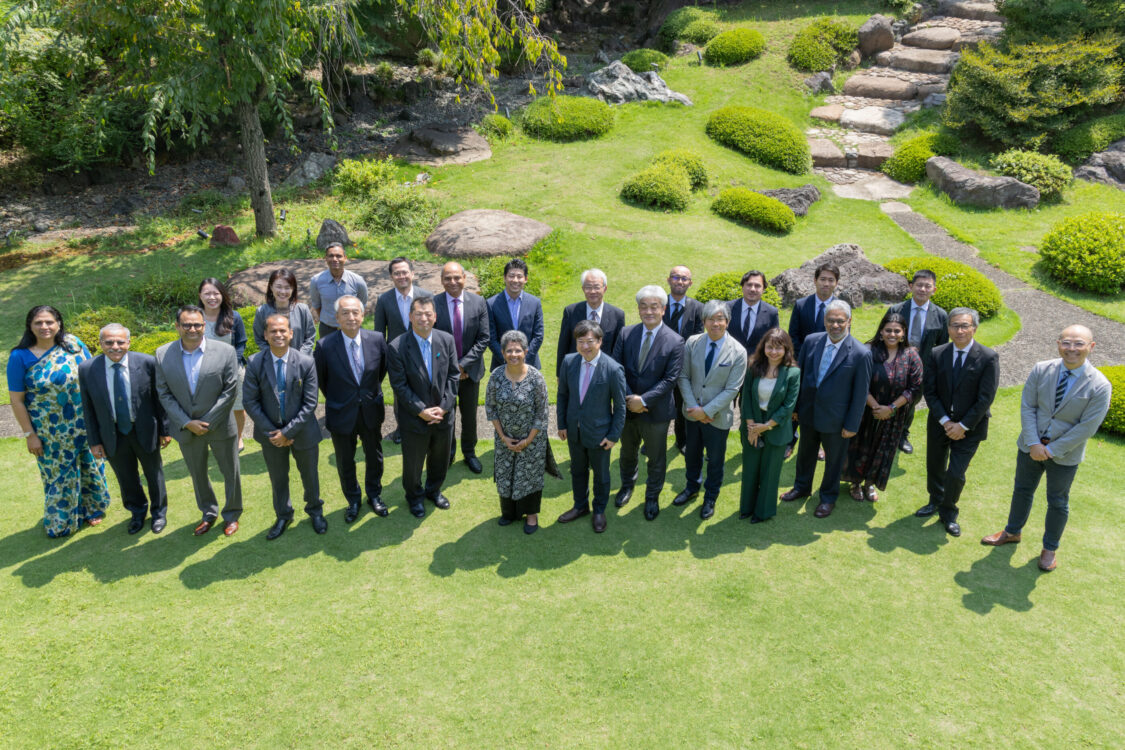
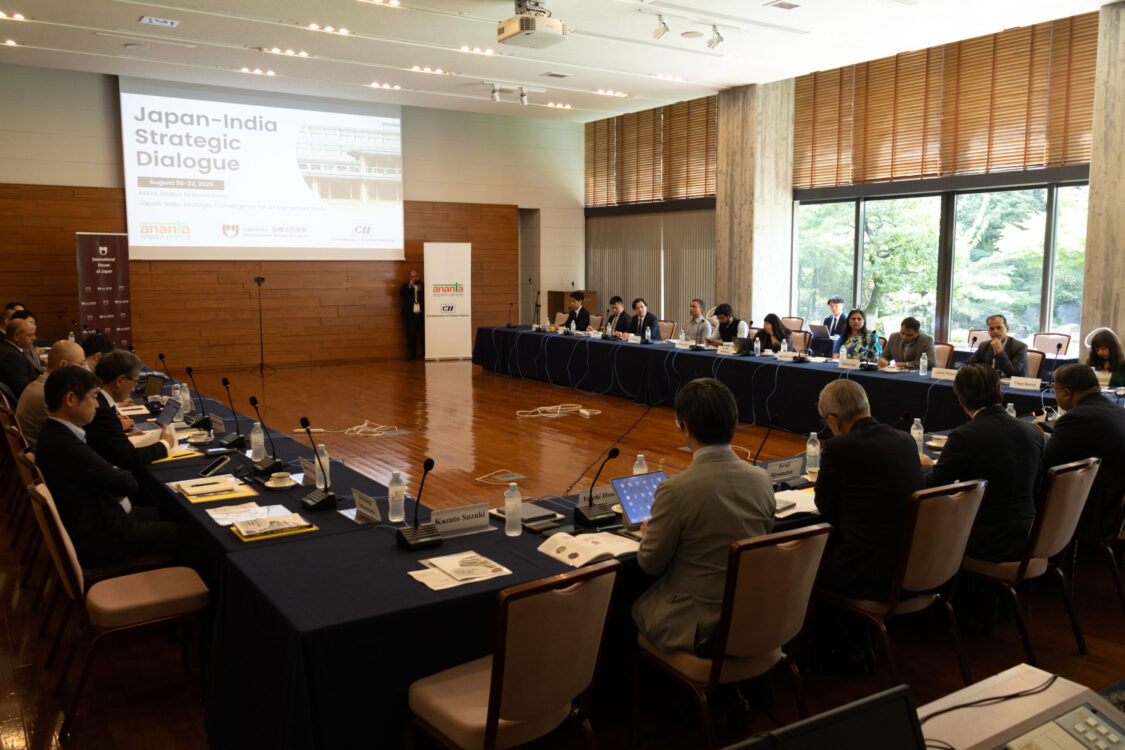
Day 1
At the Ministry of Foreign Affairs of Japan, Takehiro Funakoshi, Vice-Minister for Foreign Affairs and Kosei Nomura, Deputy Director-General, Southeast and Southwest Asian Affairs Department, joined Indian participants in a roundtable discussion. The session provided a candid and constructive exchange of views on the current state and future prospects of Japan–India strategic cooperation.
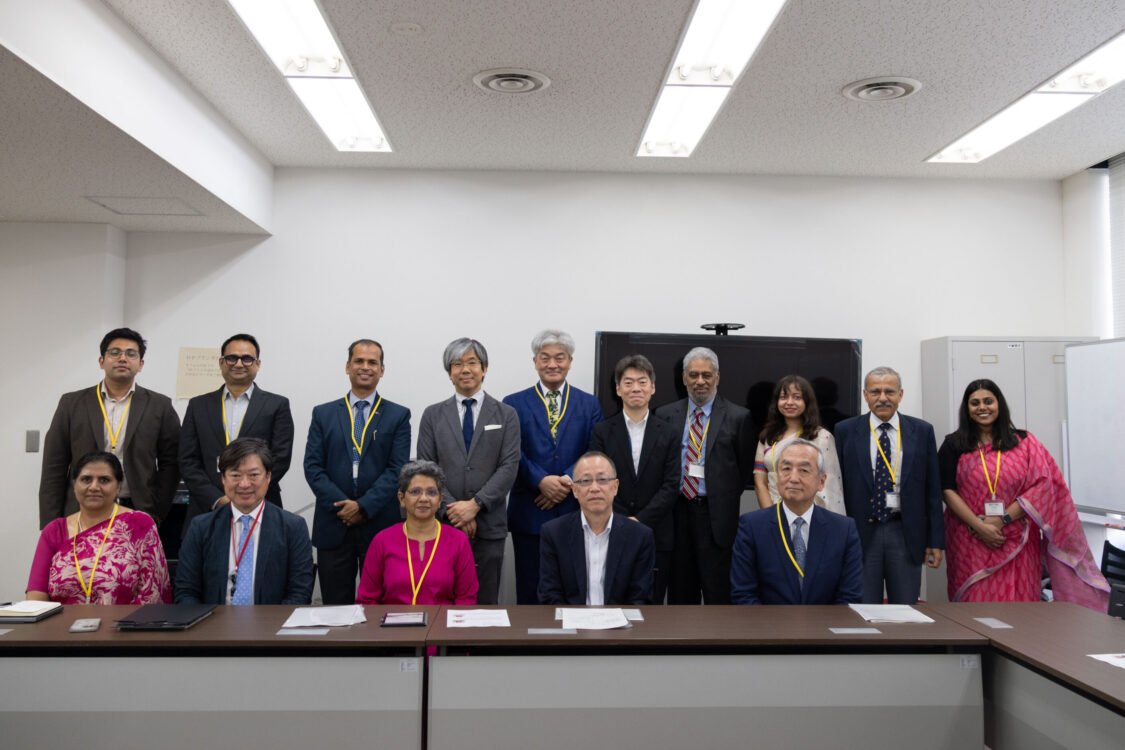
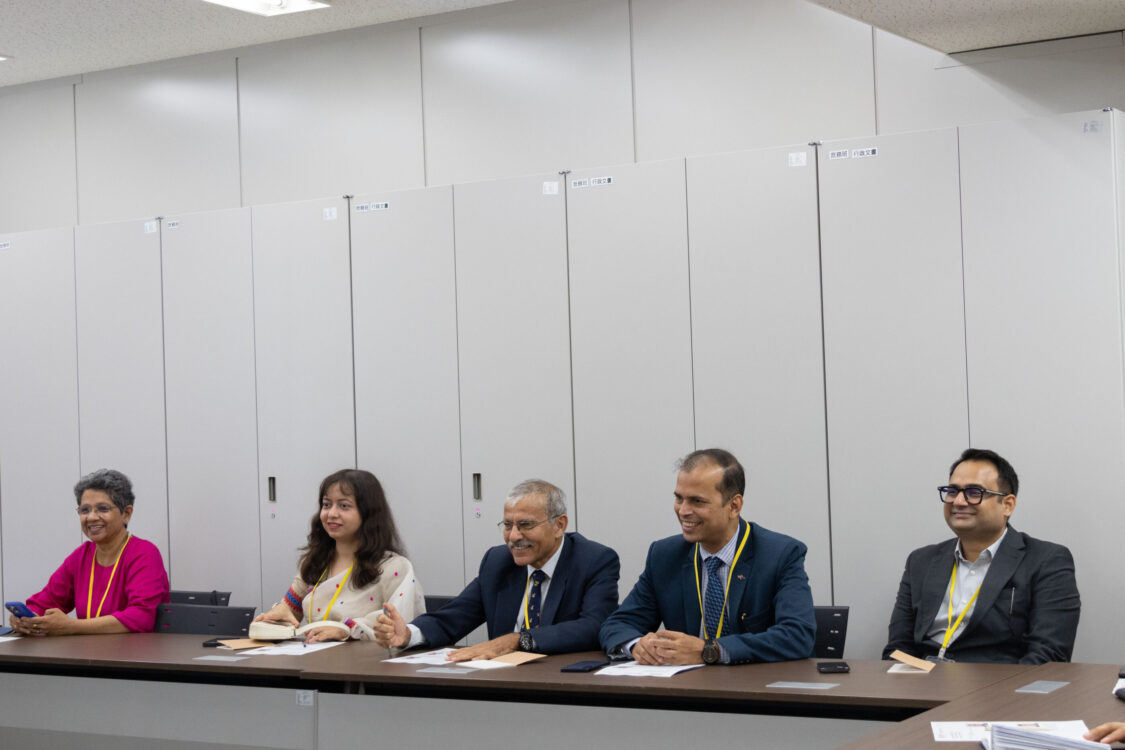
Day 2
The second day opened with a keynote speech by H.E. Ambassador Sibi George of India to Japan, who spoke on the prospects and challenges for accelerating the deepening of Japan–India relations. This was followed by four thematic sessions that fostered lively discussions and meaningful dialogue toward further strengthening bilateral ties.
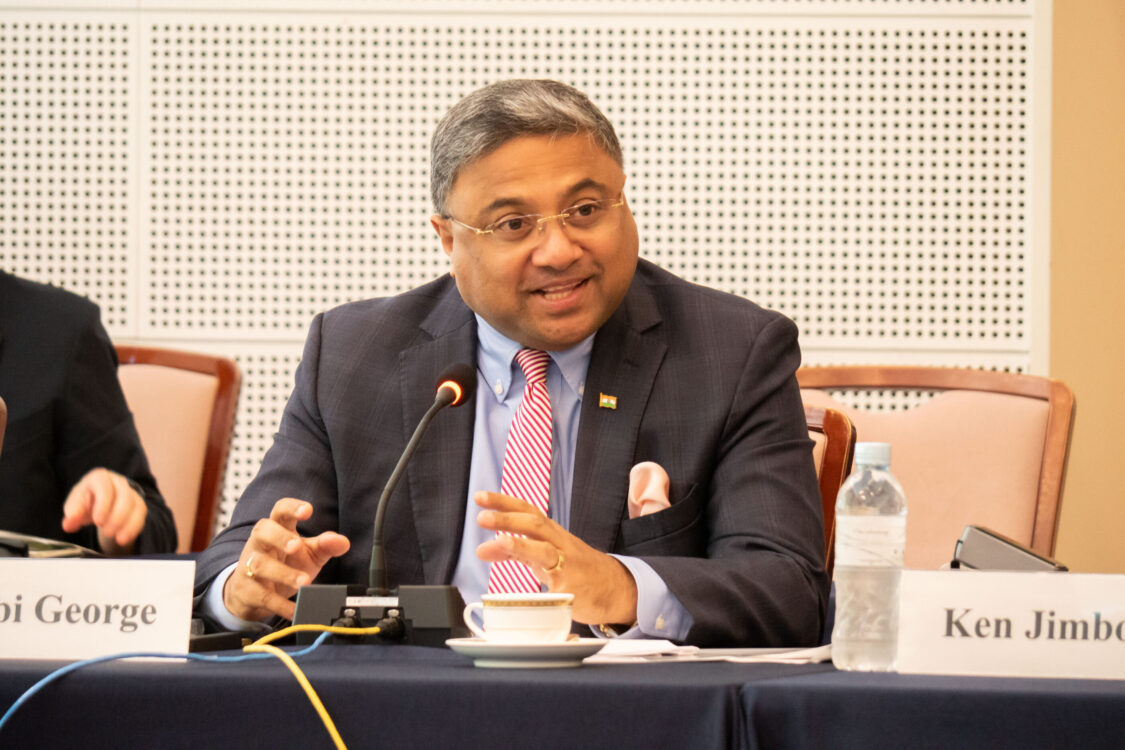
Session 1
Moderated by Hiroyuki Akita, Commentator at Nikkei, with panelists Indrani Bagchi (CEO, Ananta Aspen Centre), Satoru Mori (Professor, Faculty of Law, Keio University), and Yuichi Hosoya (Director of Research, International House of Japan; Professor, Faculty of Law, Keio University). The session examined the implications of the second Trump administration on U.S. strategic posture in Asia, discussing its impact on defense, trade, technology regulation, and alliances, as well as measures for Indo-Pacific nations, including Japan and India, to sustain regional stability and a rules-based order.
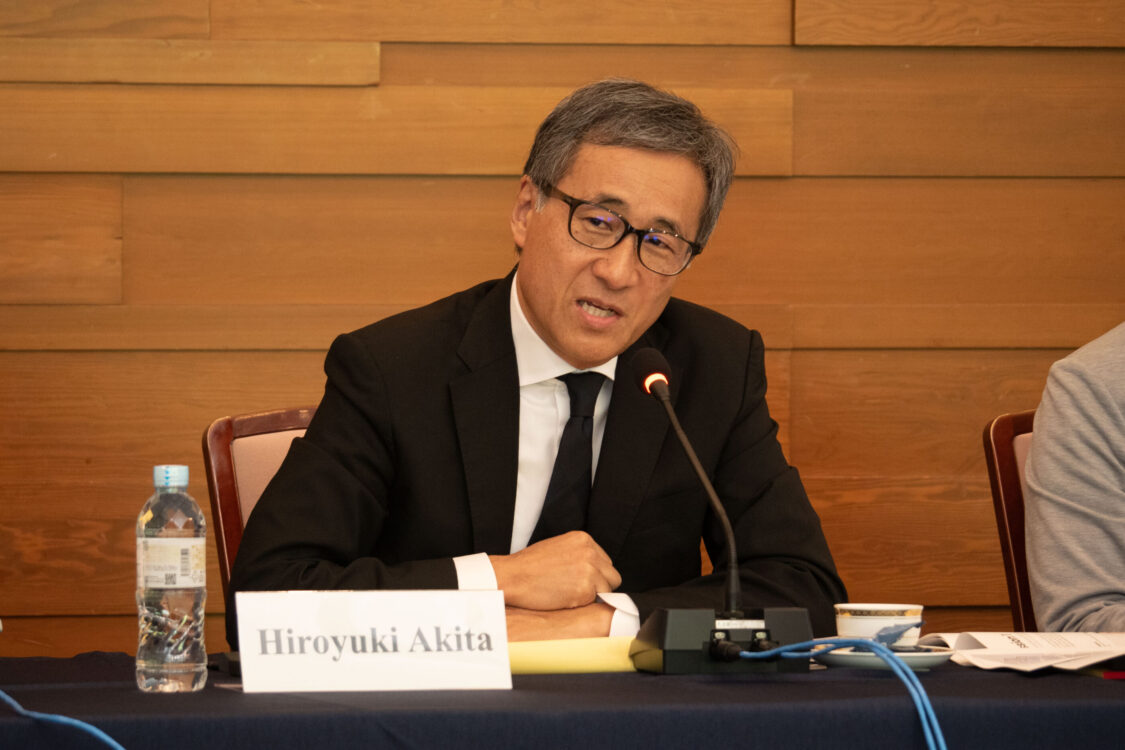
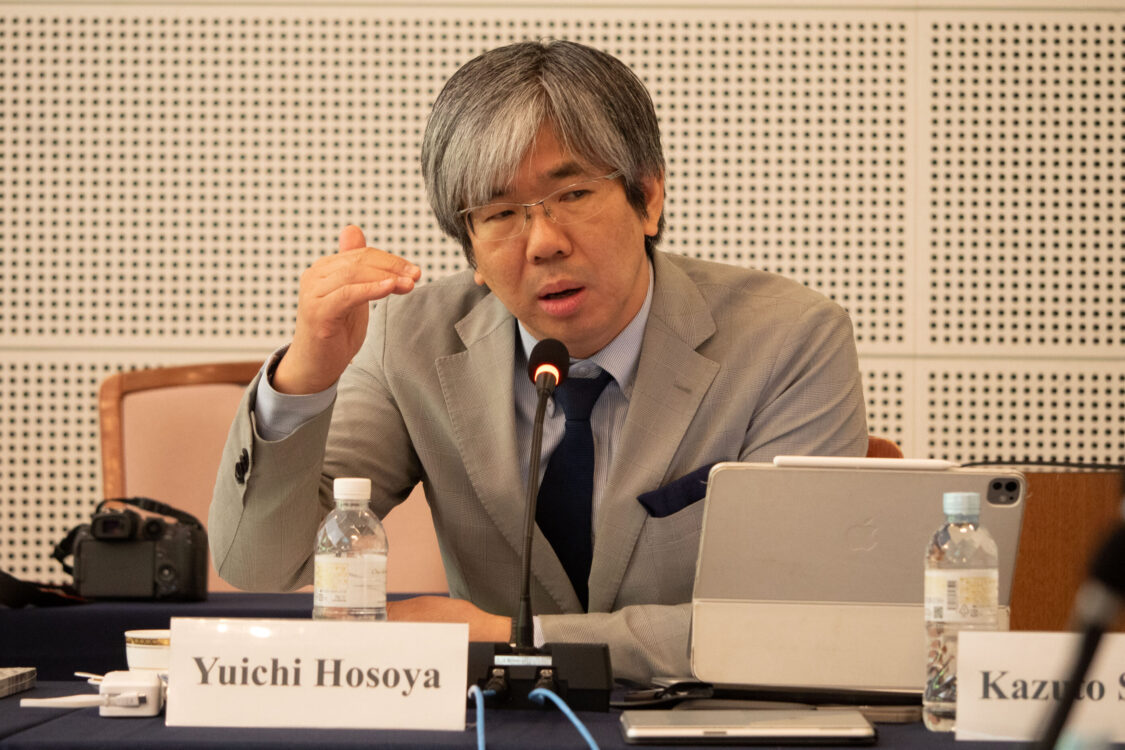
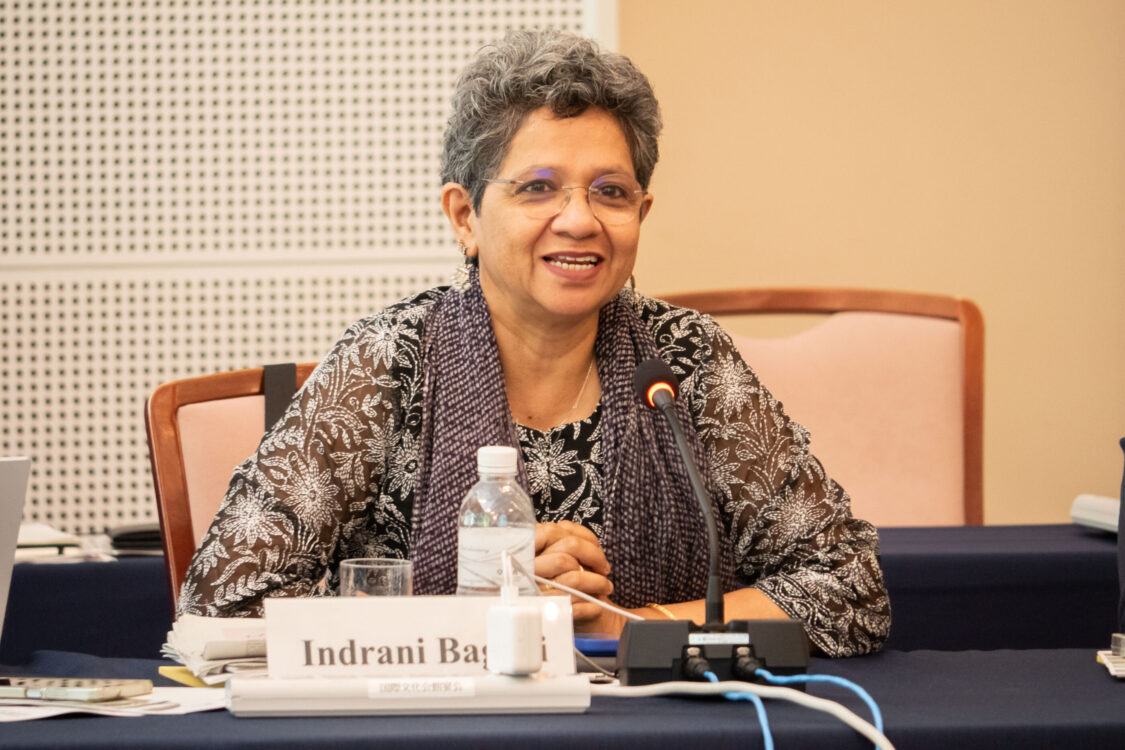
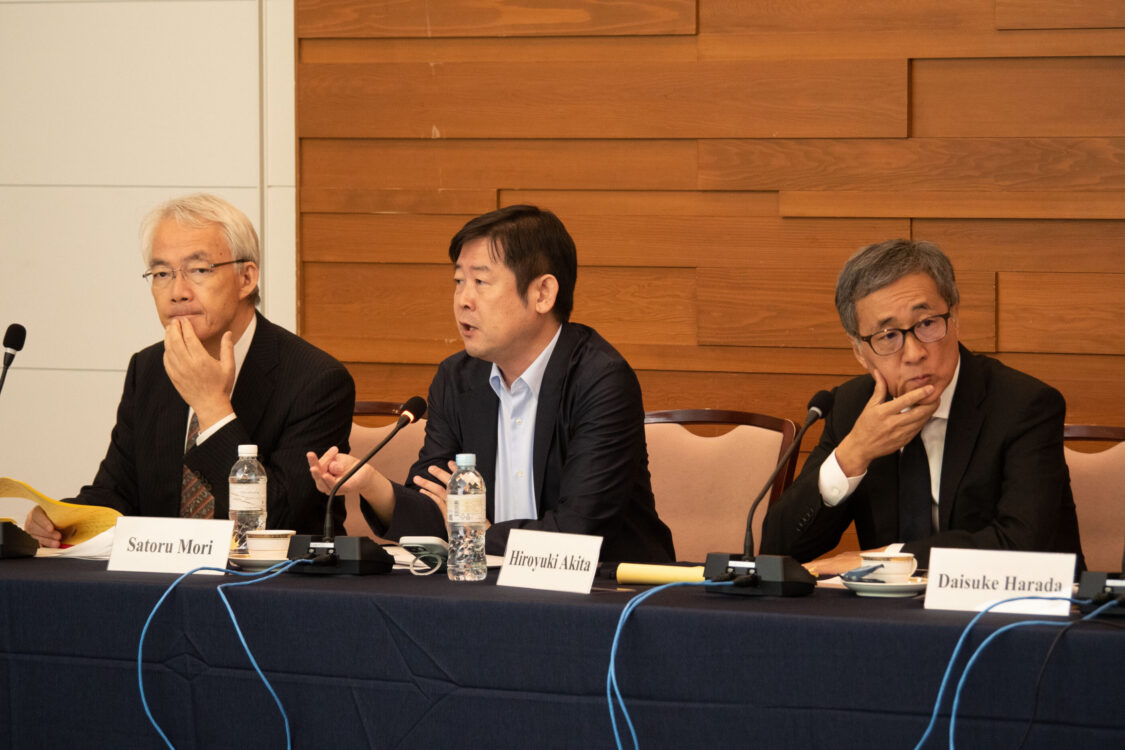
Session 2
Moderated by Yoshiyuki Sagara, Senior Research Fellow, Institute of Geoeconomics (IOG), with panelists Monty Khanna (Member, National Security Advisory Board of India; Adjunct Faculty, Naval War College), Nobushige Takamizawa (Visiting Professor, Graduate School of Public Policy, University of Tokyo), Ulupi Borah (Distinguished Fellow, Centre for Joint Warfare Studies), and Hiroto Ogi (Senior Research Fellow, IOG). The session focused on Indo-Pacific security and prospects for Japan–India strategic cooperation, addressing maritime domain awareness, joint exercises, intelligence collaboration, and defense industry linkages, as well as emerging areas such as autonomous systems and cyber defense, presenting concrete approaches for building a resilient, rules-based order.
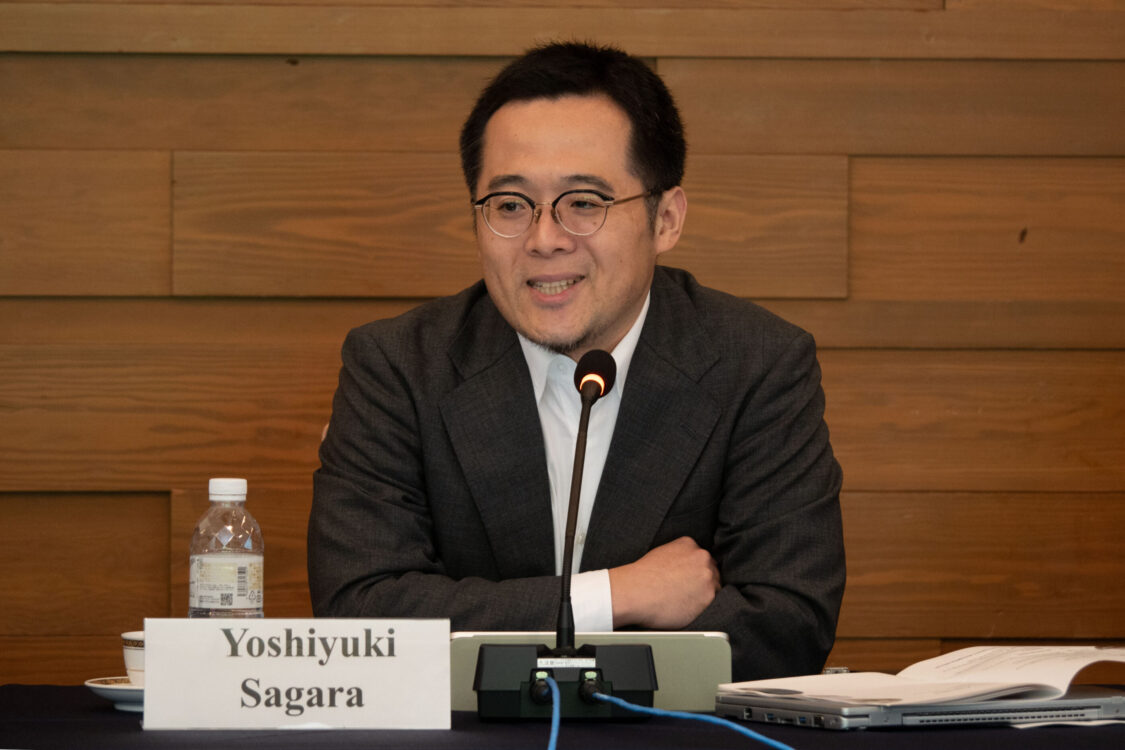
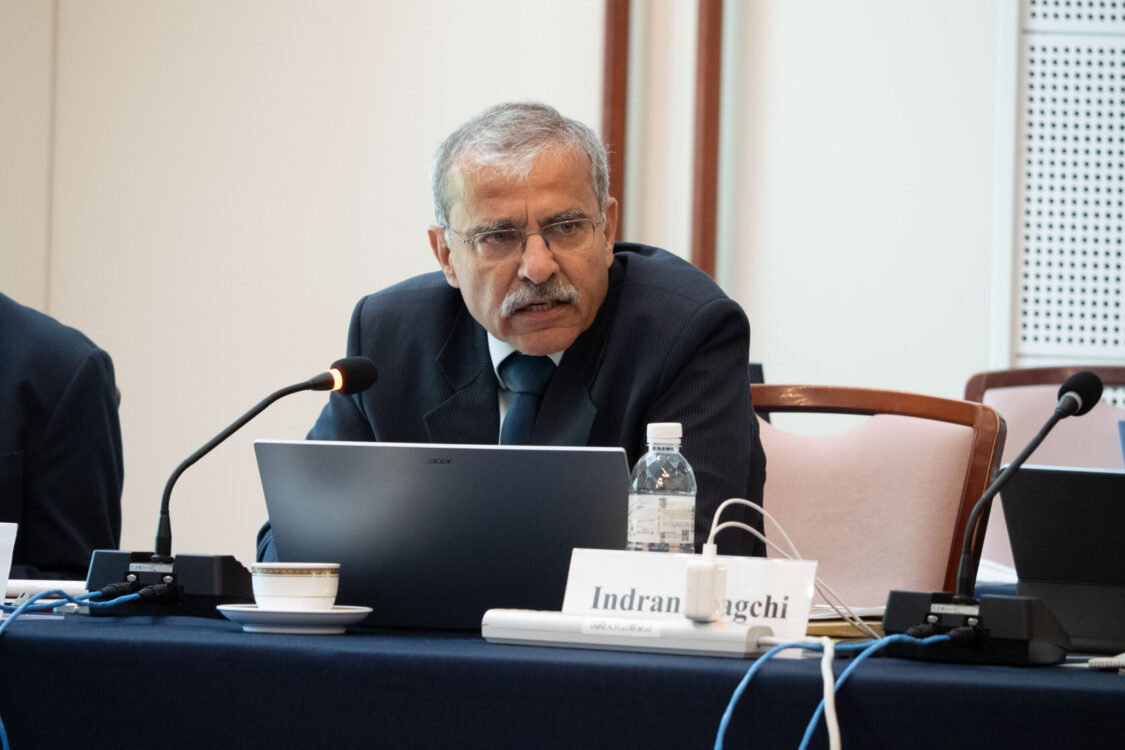
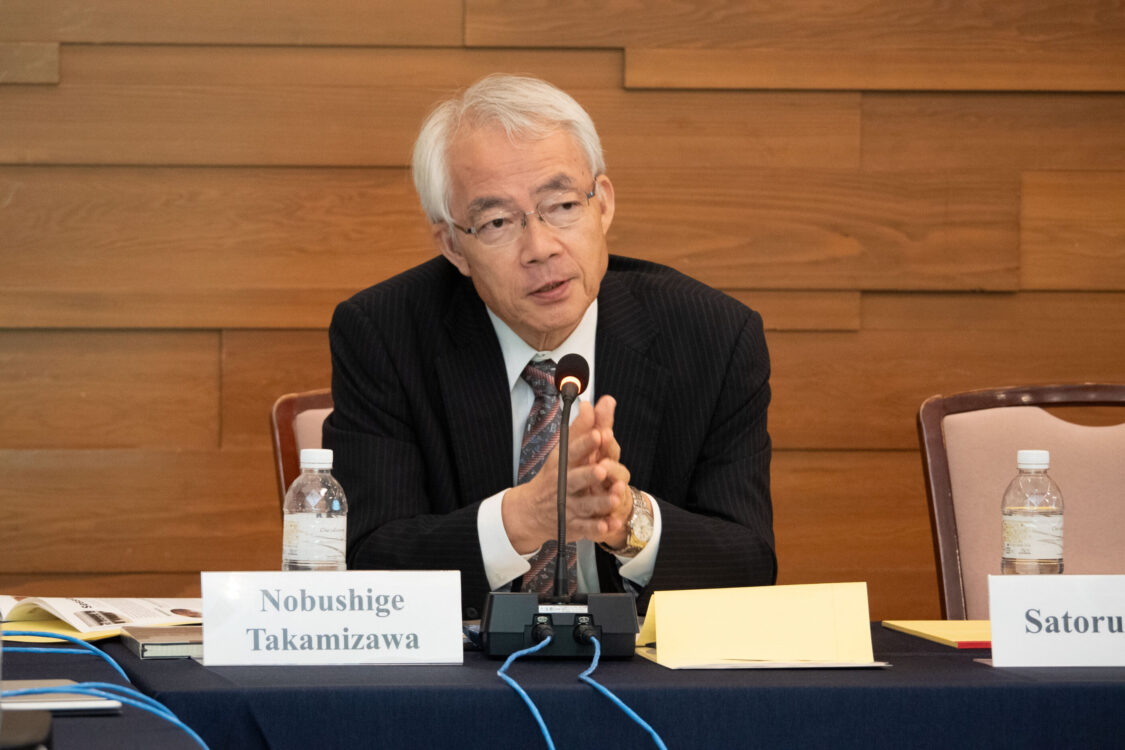
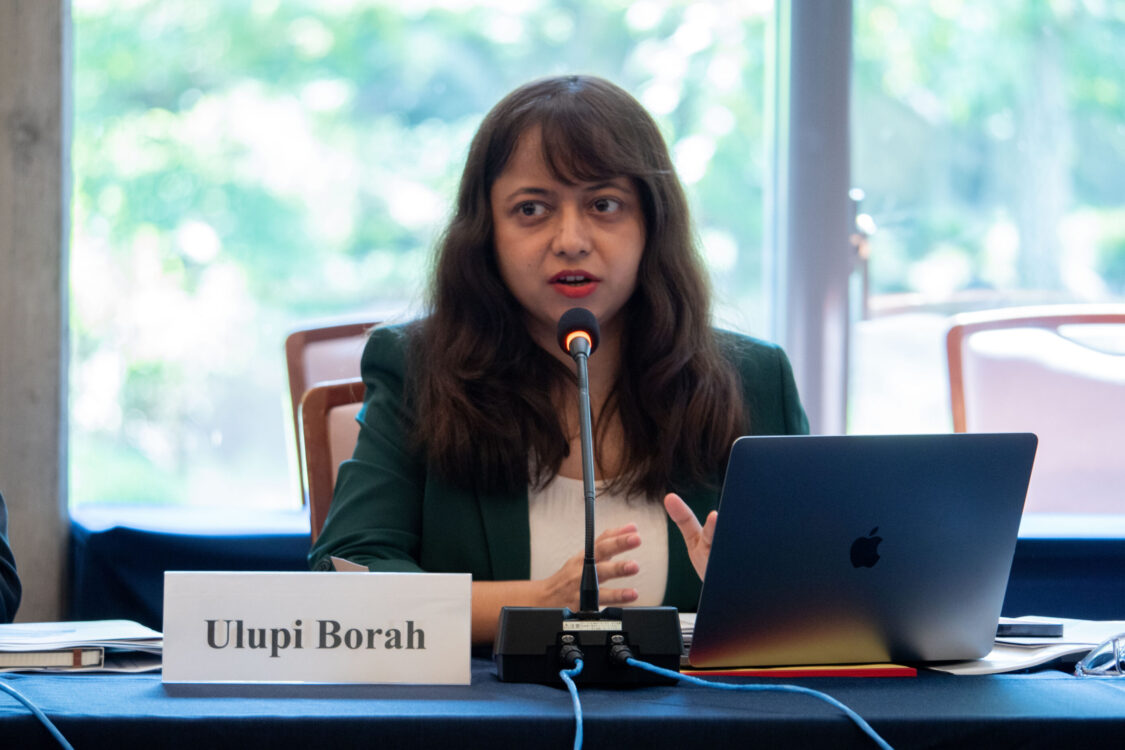
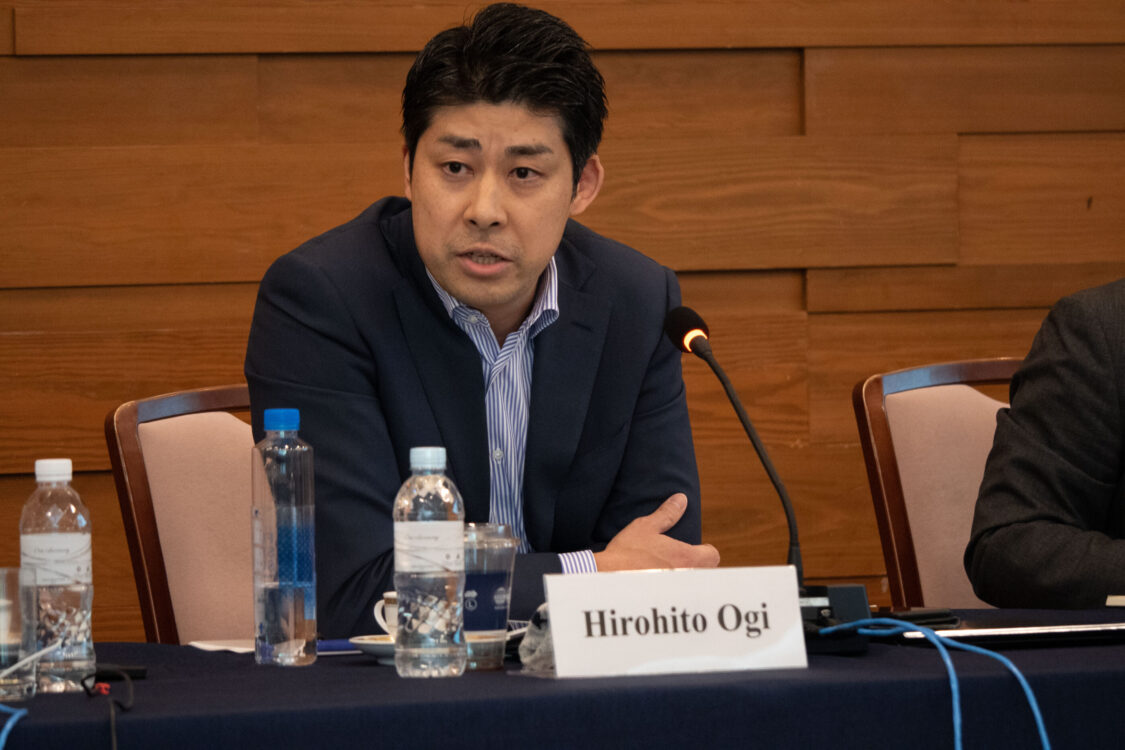
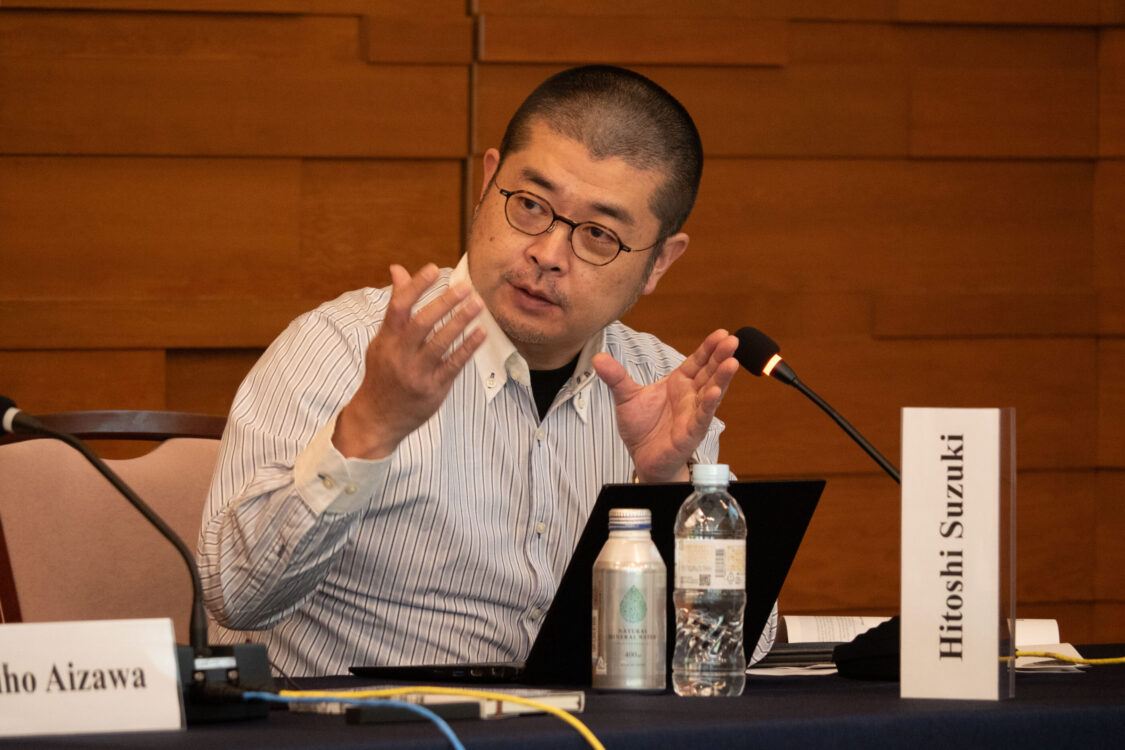
Lunch Session
Hiroshi Arima, Deputy Minister / Director-General, Foreign Policy Bureau of the Ministry of Foreign Affairs, delivered remarks as guest speaker, sharing Japan’s perspective on the second Trump administration. Participants engaged in active discussions on the future of international order and regional cooperation.
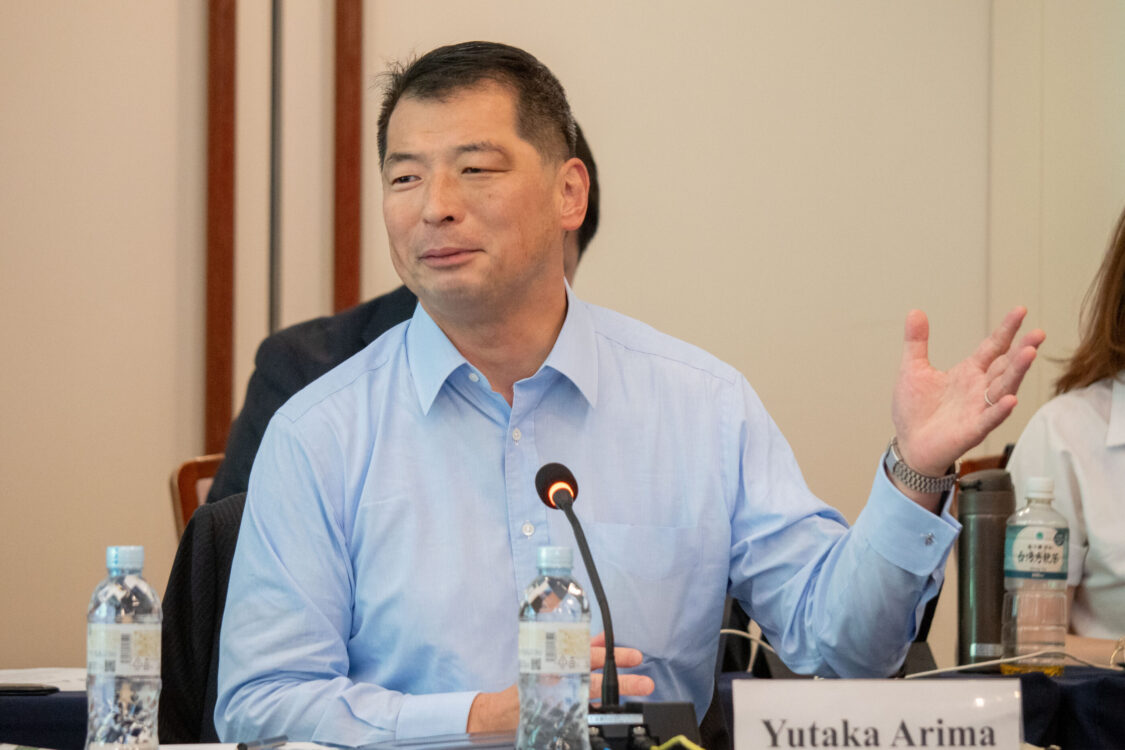
Session 3
Moderated by Indrani Bagchi, CEO of the Ananta Aspen Centre, with panelists Kazuto Suzuki (Director, IOG), Rahul Jain (Head of Government Affairs, Tata Electronics), Daisuke Harada (Director, JOGMEC), and Ashish Mohan (Executive Director, Technology, R&D, Innovation, and Design, Confederation of Indian Industry). Discussions centered on economic security and supply chain resilience, exploring how countries including Japan and India could secure strategic resilience through industrial policies, trusted trade networks, and economic instruments amid the growing strategic use of trade and technology.
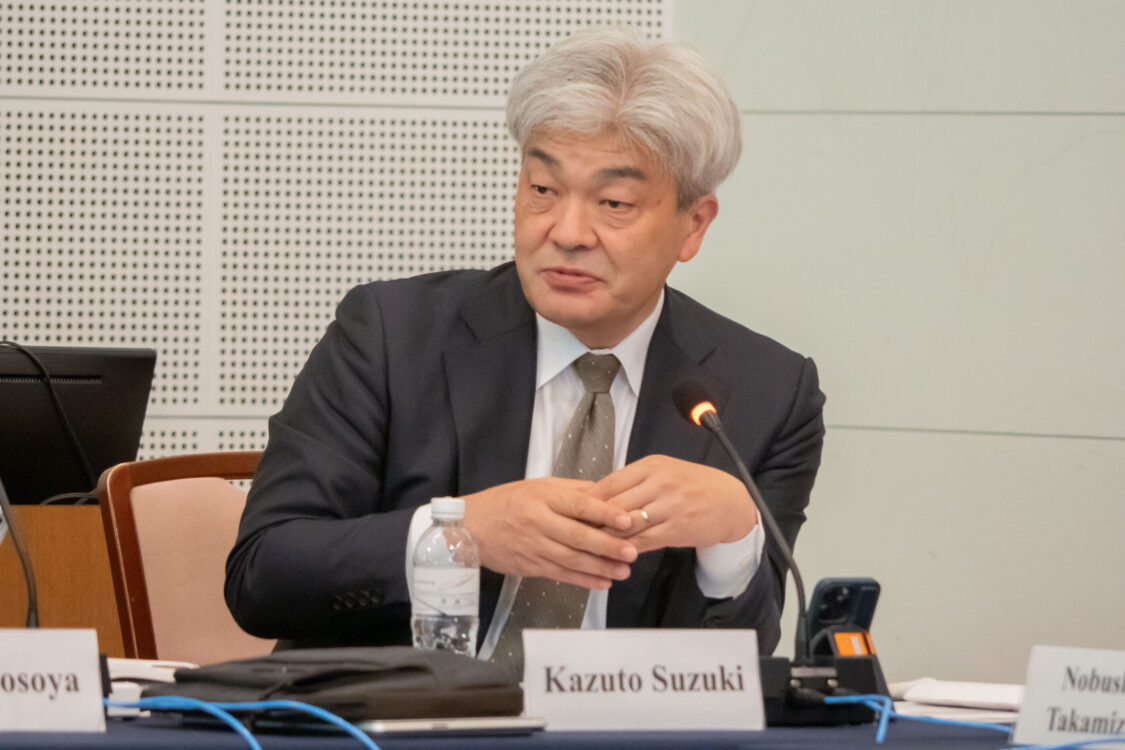
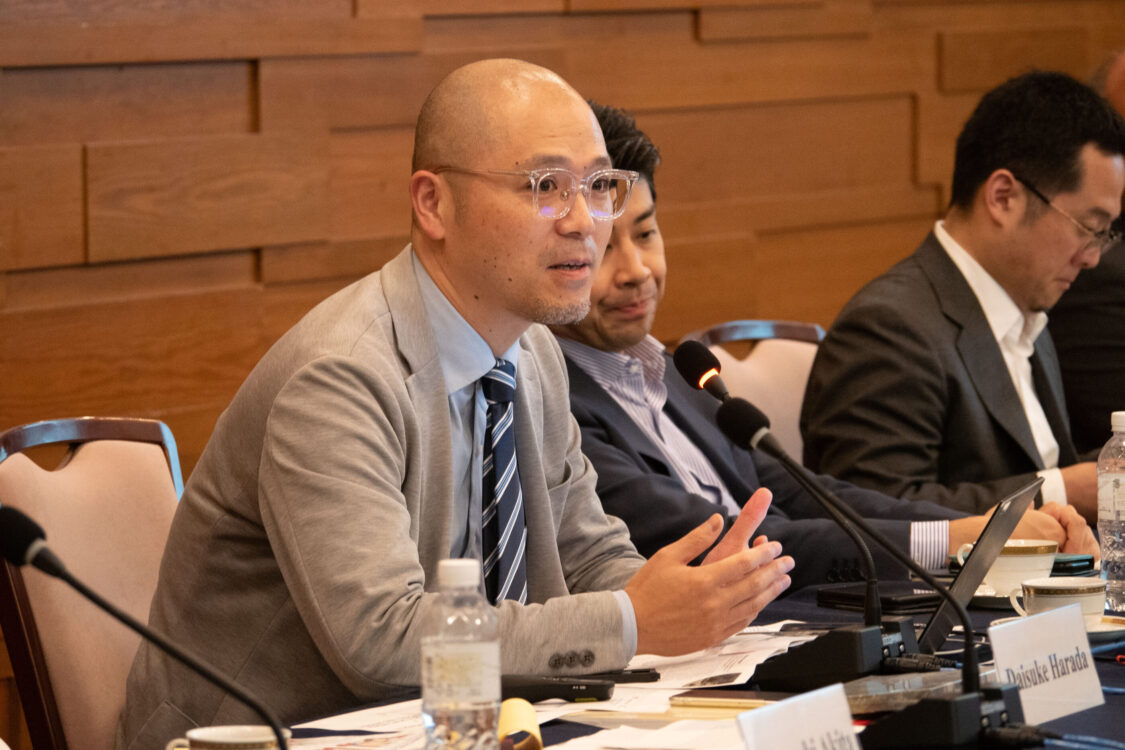
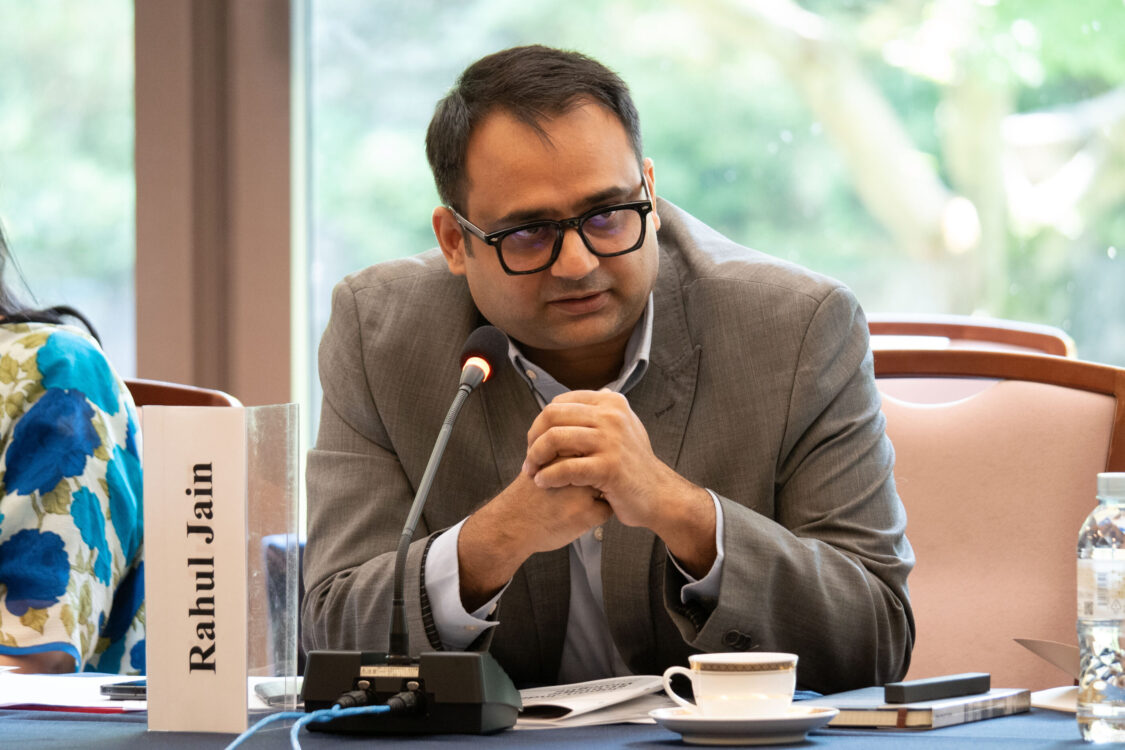
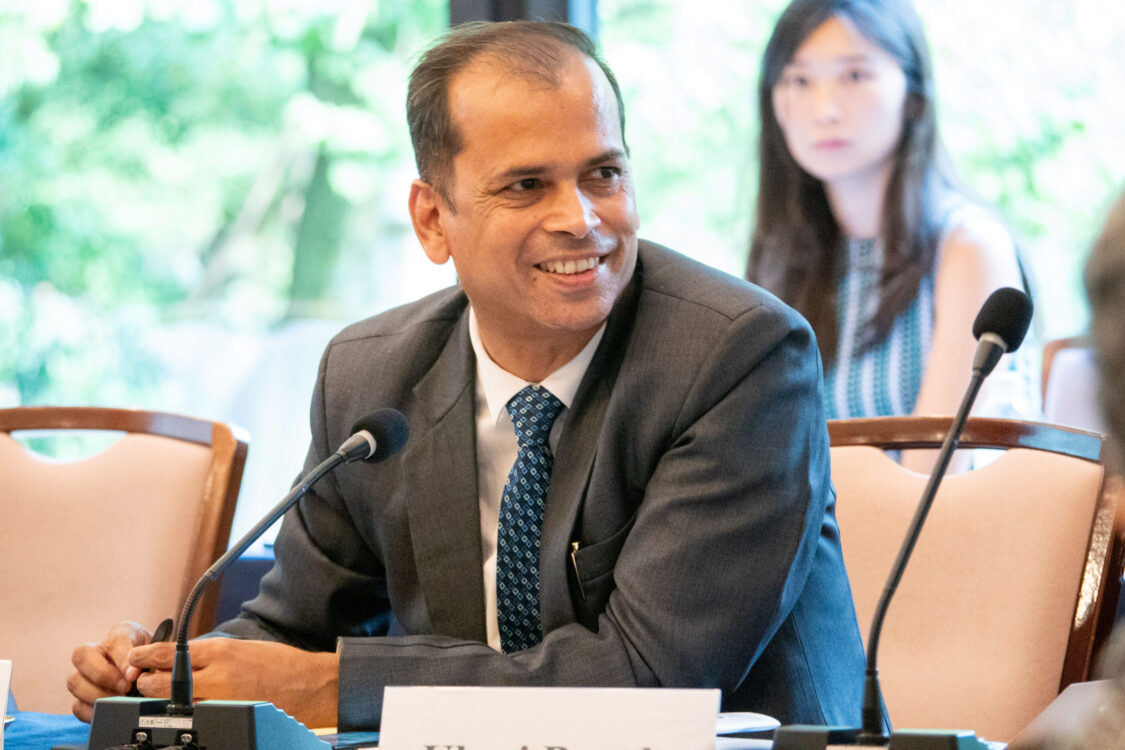
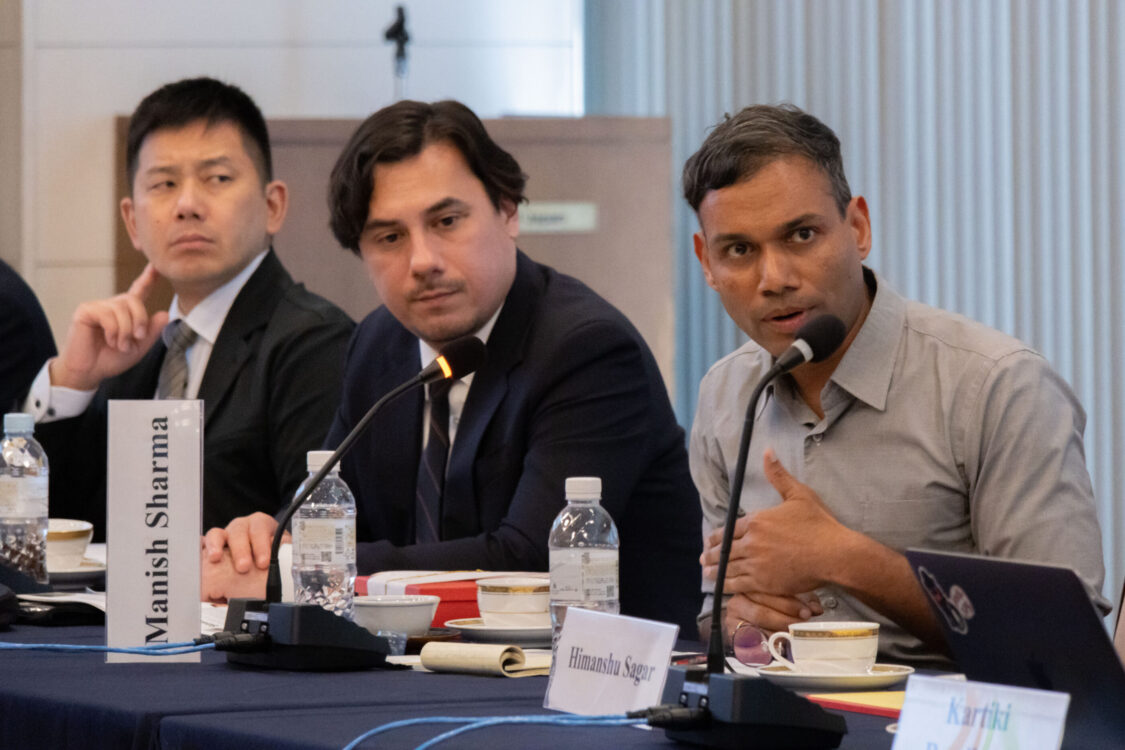
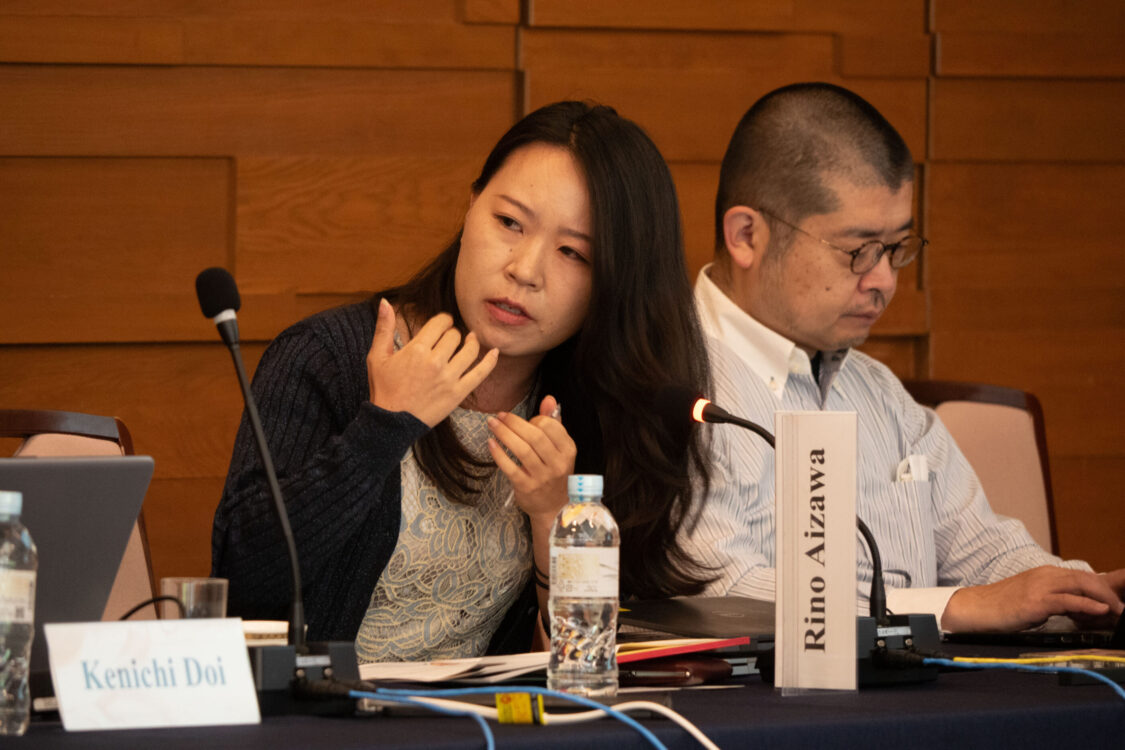
Session 4
Moderated by Ken Jimbo, Managing Director, International House of Japan, with panelists Kenji Hiramatsu (Chairman, Institute for International Strategy, The Japan Research Institute; former Ambassador of Japan to India) and C. Raja Mohan (Distinguished Fellow, Council on Strategic and Defence Research). The session addressed the role of Japan–India strategic partnership in a fragmented international order. Reflecting on conflicts in Europe and tensions in the Indo-Pacific, panelists discussed how both countries could strengthen a stable and inclusive international order through deeper political dialogue, engagement with Asia, Europe, and the Global South, and by serving as strategic bridges to uphold international norms.
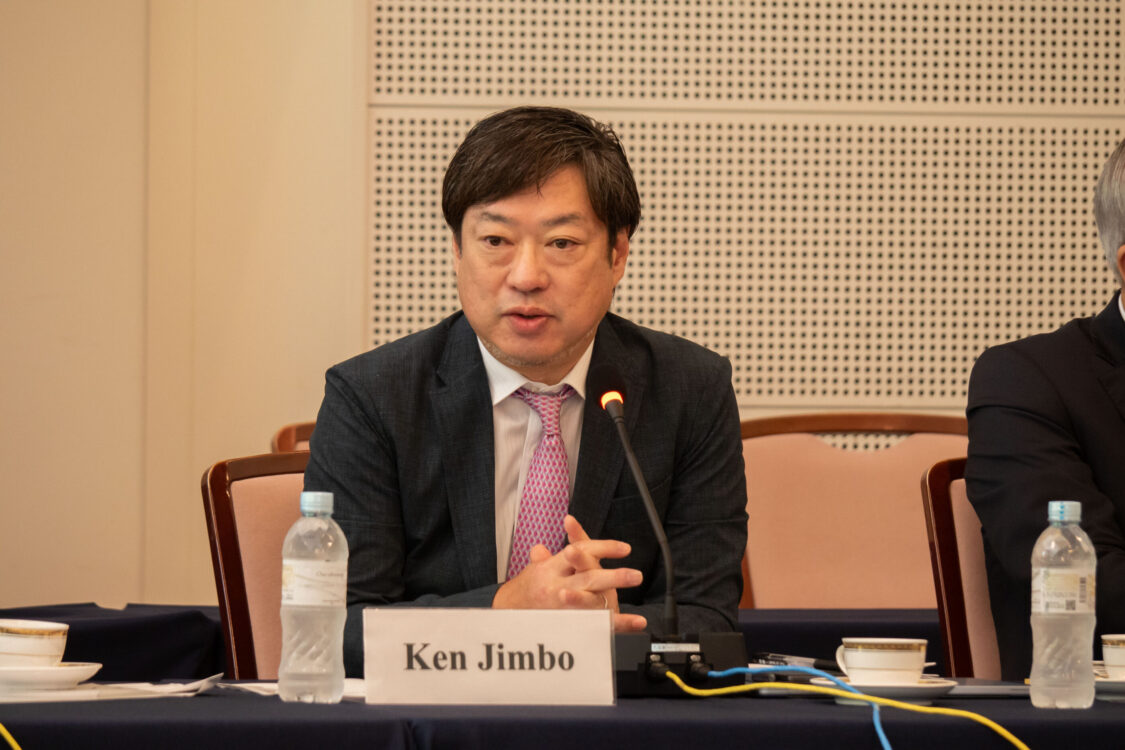
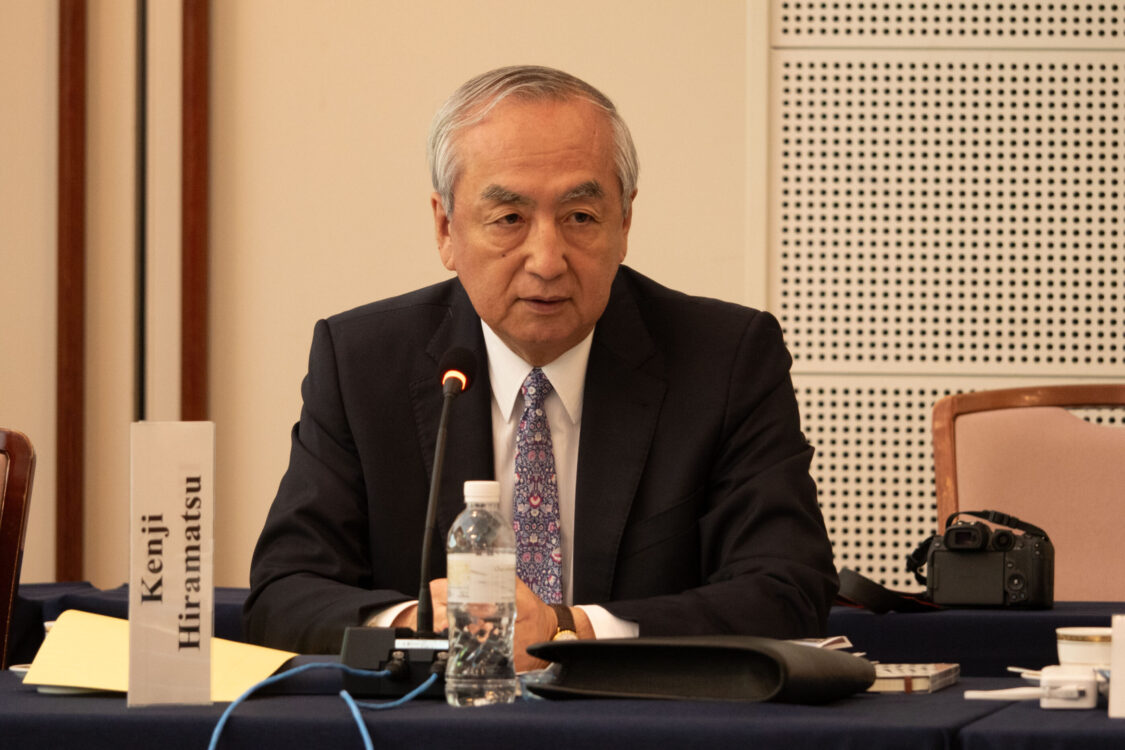
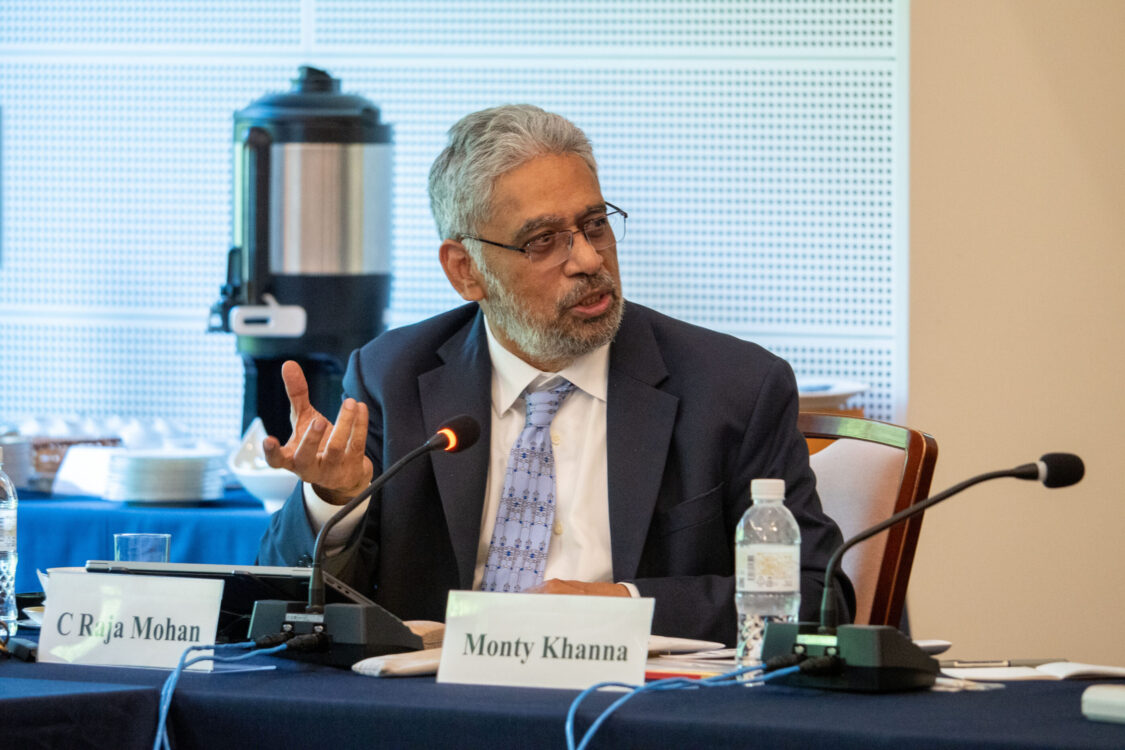
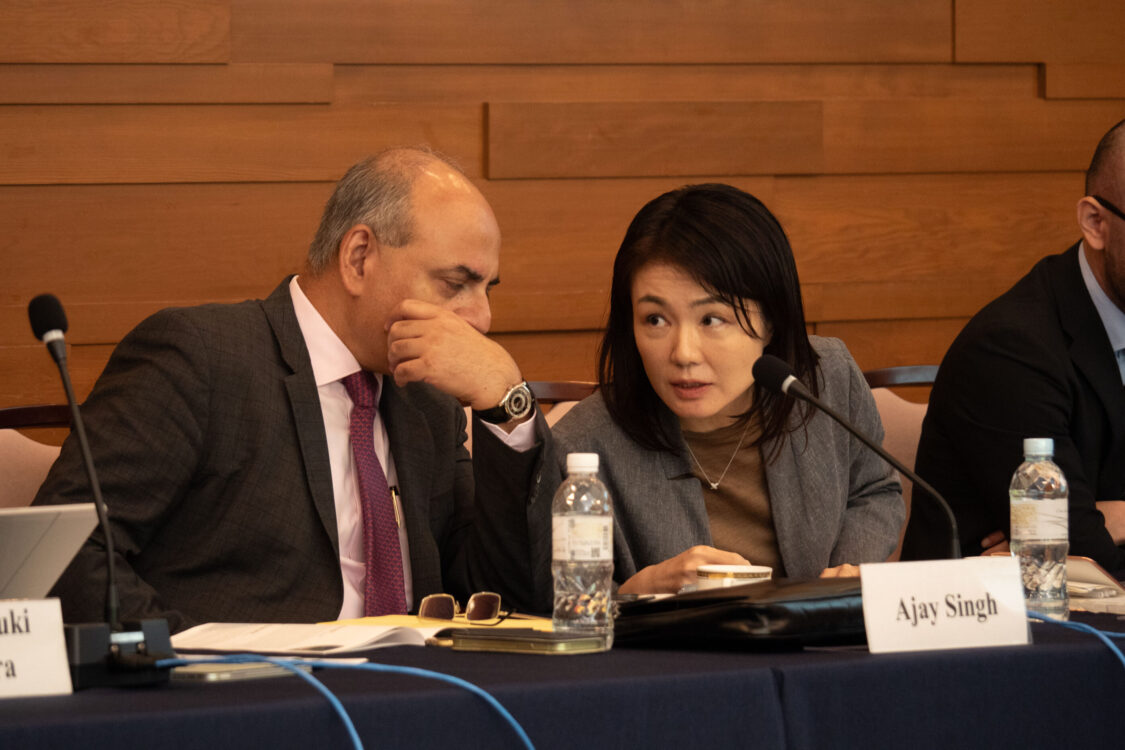
Dinner Reception
At the dinner reception, James M. Kondo, Chairman of the International House of Japan, welcomed participants by honoring the longstanding partnership between Japan and India and expressing his hopes for further deepening intellectual exchange. Guest speaker Keisuke Suzuki, Minister of Justice, delivered a speech highlighting the significance of bilateral relations and opportunities for cooperation on shared challenges. The evening provided participants with a valuable opportunity to strengthen trust and friendship between the two countries in a warm and collegial atmosphere.
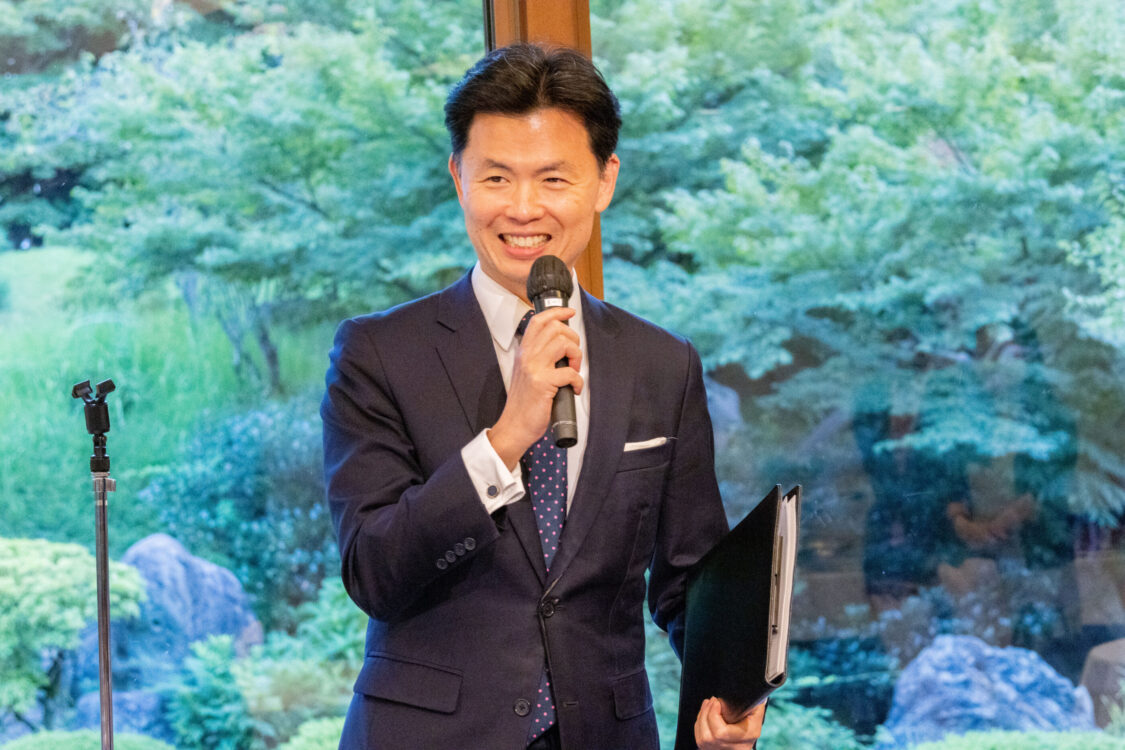
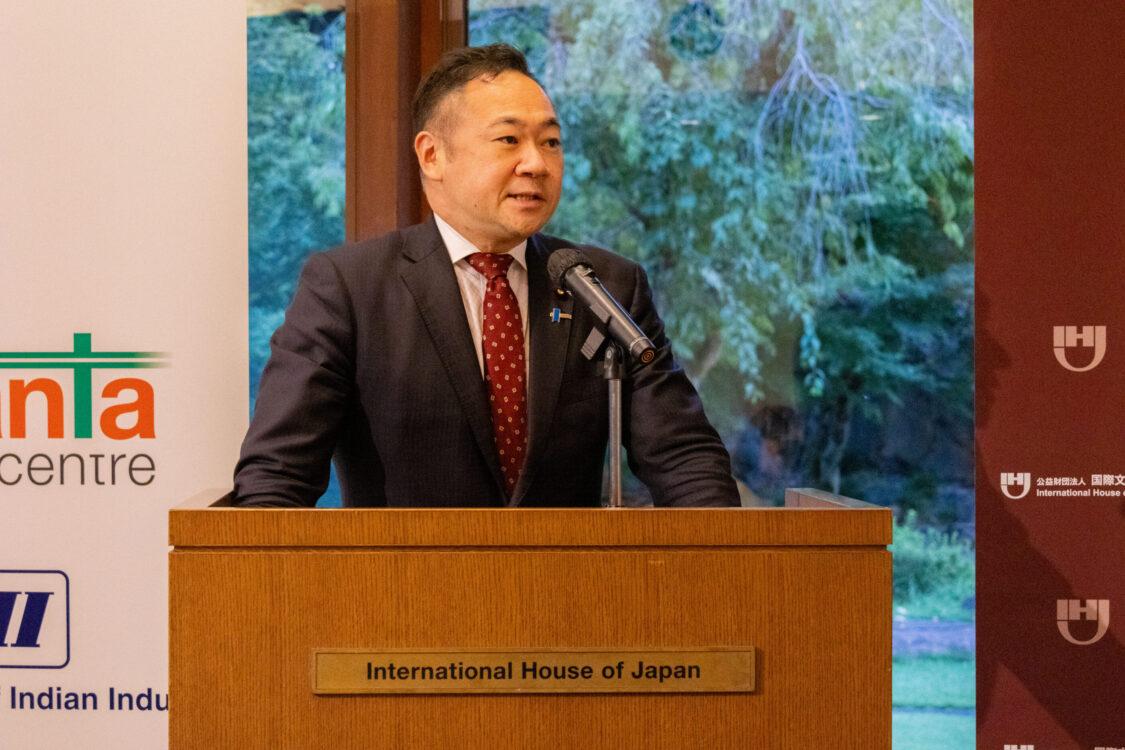
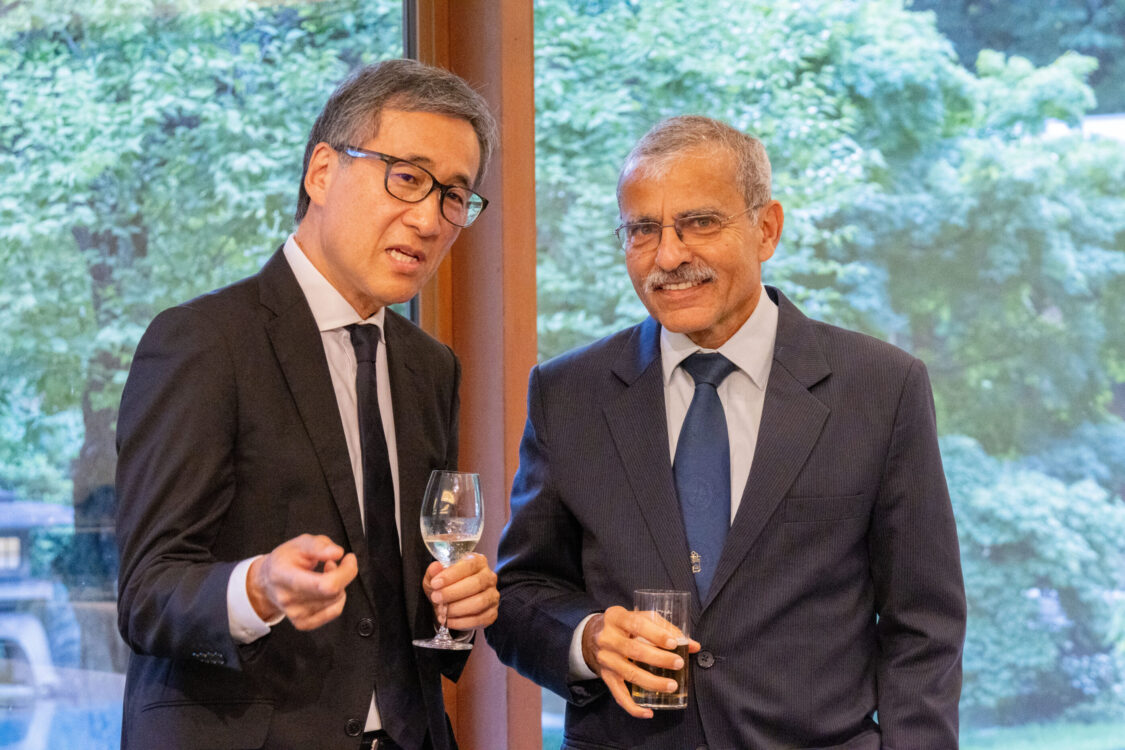
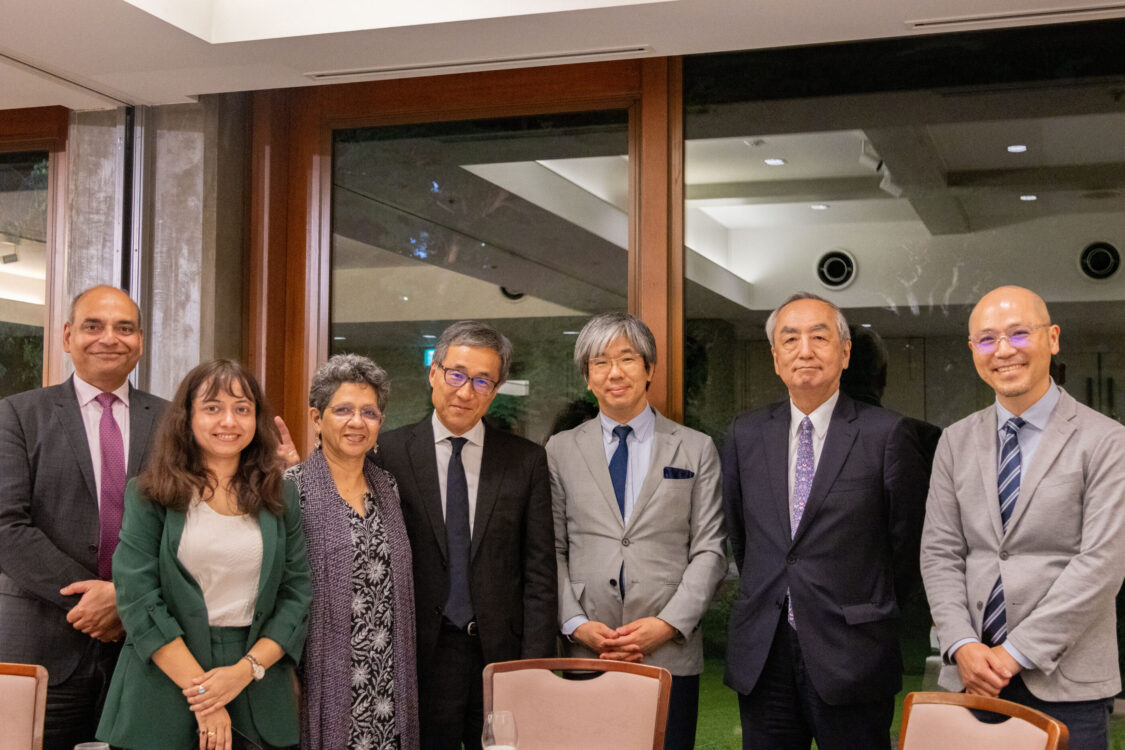
Day 3
On the final day, a public forum brought together Japanese and Indian experts and policymakers for a concluding discussion. Against the backdrop of intensifying great-power competition and growing uncertainty in the international order, participants explored geoeconomic shifts in the Indo-Pacific from the perspectives of geopolitics, economic security, and bilateral cooperation.
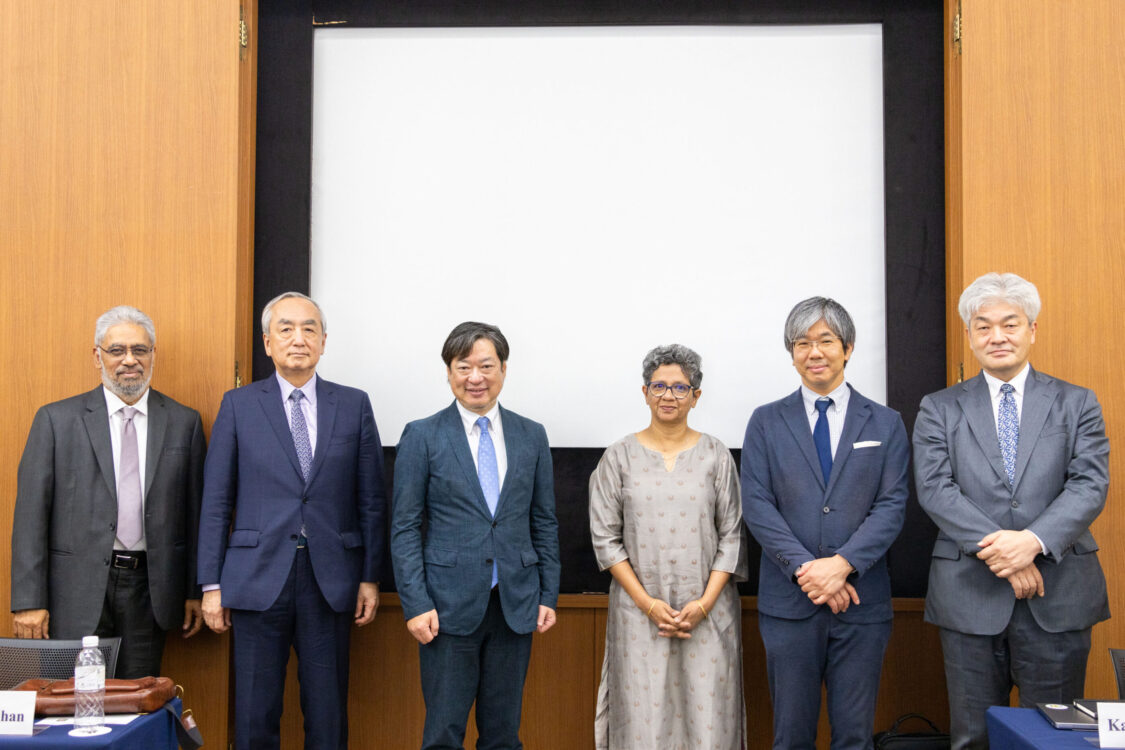
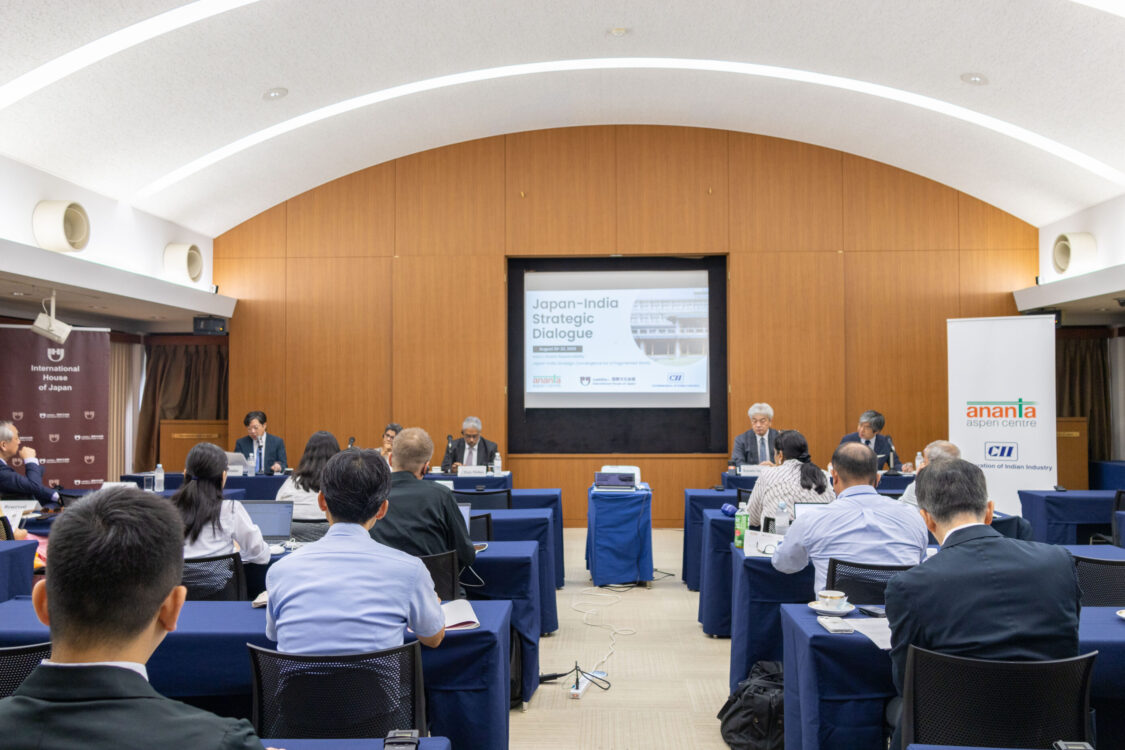
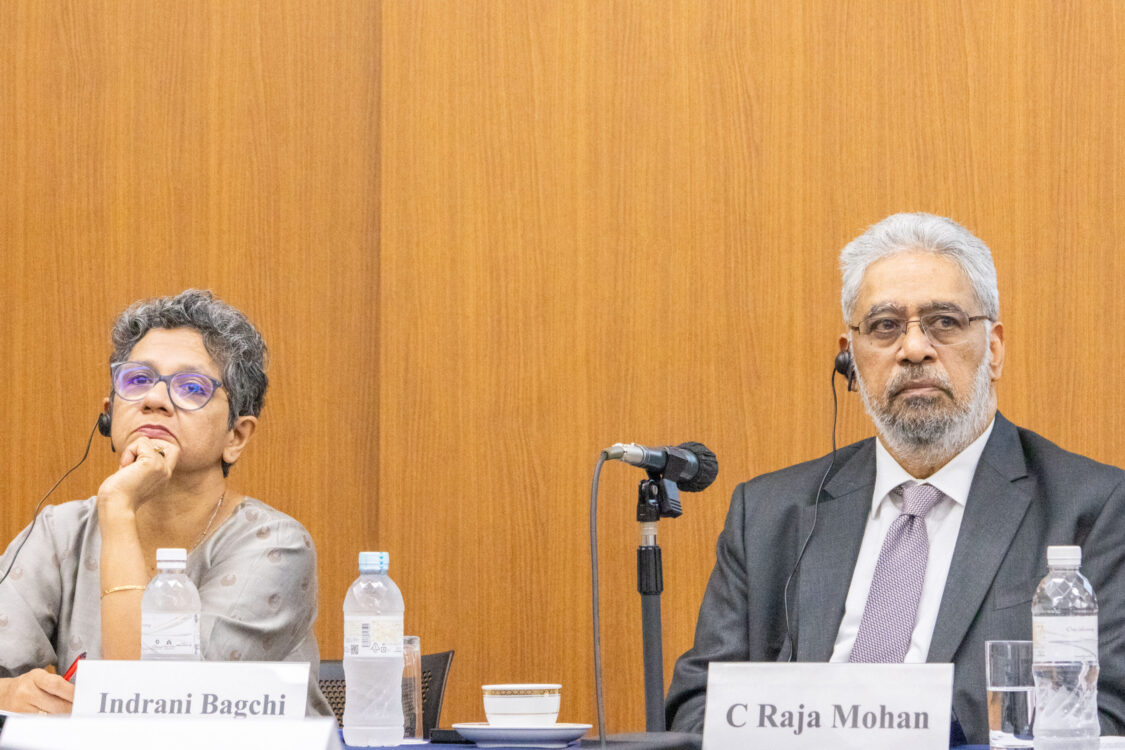
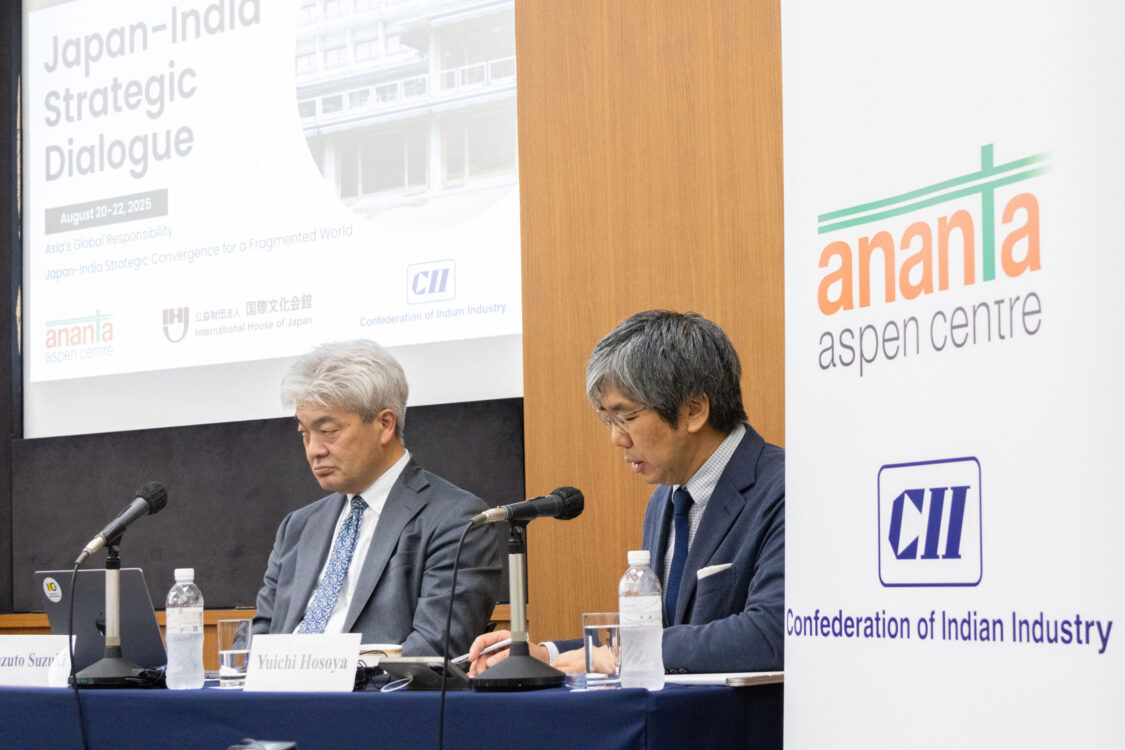
Through this dialogue, it is expected that cooperation between Japan and India, grounded in shared strategic interests and values, will further deepen. The Japan–India relationship has entered a new phase as an indispensable pillar supporting stability and prosperity in the Indo-Pacific, with both countries expected to play a vital role in building international order and addressing global challenges. The International House of Japan and the Ananta Aspen Centre will continue their efforts to promote mutual understanding and strengthen the partnership between Japan and India.
